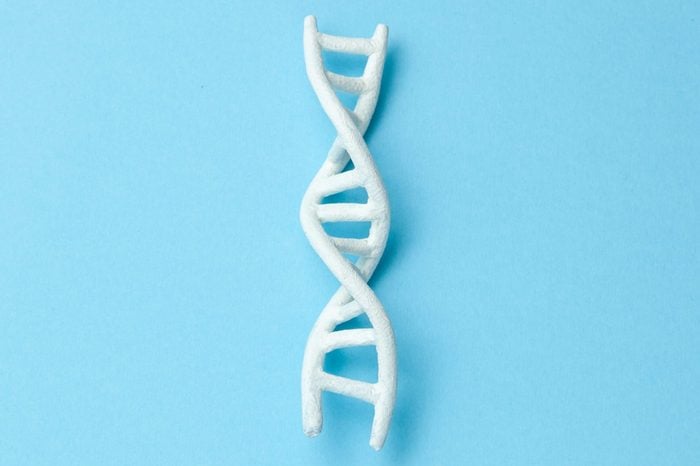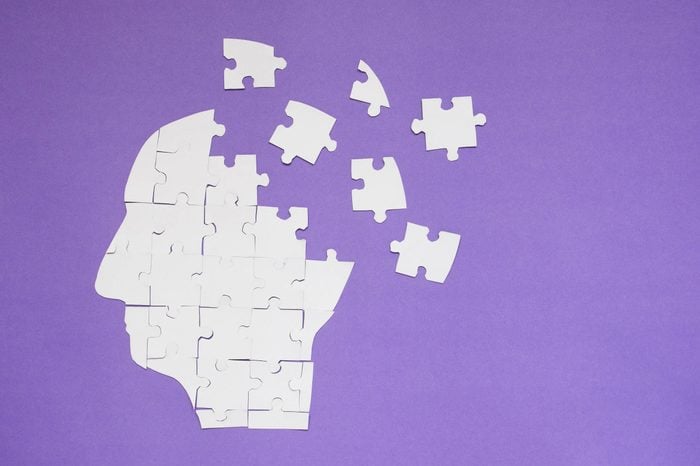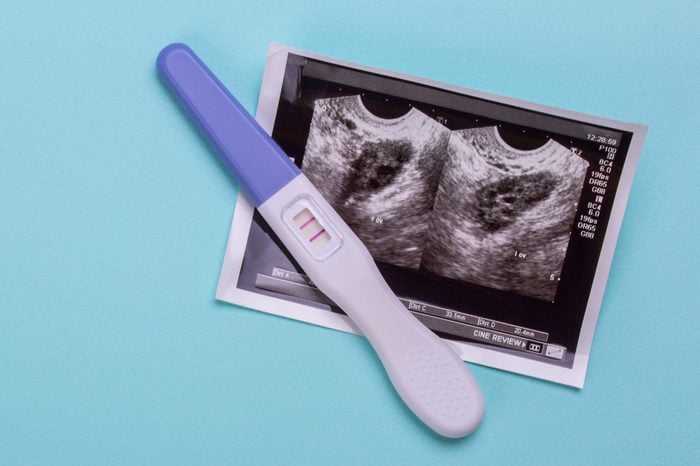
Genetic inheritance
Do you have your mom’s button nose? Did your dad pass on the curse of sneezing in bright sunlight? And where did your baby’s red, curly hair come from when there hasn’t been a redhead in your family for generations? These questions may sound simple but the answers get complicated fast. Why? Because the science of genetic inheritance is complicated, says Dawn Allain, licensed genetic counselor and director of the Genetic Counseling Graduate Program at The Ohio State University Wexner Medical Center. “It’s nearly impossible to tease out exactly where each of your traits came from,” she explains. “Most traits are influenced by many different genes and you inherit some from each parent.” Plus, there’s the influence your environment plays; just because you have a gene for a certain trait doesn’t always mean you’ll end up with it, she adds. Then there are traits people often assume are inherited but actually aren’t.

How you inherit traits
Still, it’s fun to ask those questions, and while there aren’t many detailed answers, there are a few basic things genetics can tell you about traits you inherit from your mom and those you got from our dad, Allain says. But first, you need to know how inheritance works.
“There are three main ways you can inherit traits from your parents,” she explains. First is through a dominant gene—if you inherit a dominant gene, you will develop that trait. Take eye color, for example. If either of your parents has brown eyes, you likely will have brown eyes as this is a dominant trait. Second is through a recessive gene—both parents have to have the recessive gene for you to have that trait. For instance, if you have blue eyes, then both of your parents must carry a gene for blue eyes, even if their eye color isn’t blue. Lastly, there are X-linked traits, which are found only on the X chromosome and are passed on through the mother.

Your ability to lose weight
There are two types of fat in your body: “good” brown fat, which increases your metabolism and helps you maintain a healthy weight, and “bad” white fat, which can cause obesity and disease if you have too much of it. Everyone has some of each type, but how much brown fat you have—and therefore how high your metabolism is—may be inherited from your mom, according to a study published in Nature Communications. Another trait that you get from your mom is your intelligence.

How easily you gain weight
However, while your mom may be helping you out with the brown fat, you can blame your dad for your white fat, the Nature Communications study found. How much fat you store, particularly around your organs, may be partly determined by genes passed down from your father, the researchers said. Genetics aren’t destiny when it comes to your weight; your lifestyle choices play an even bigger part.

Your ability to focus
If your mother has lower levels of serotonin, a brain chemical linked to mood, then you’re more likely to develop attention-deficit hyperactivity disorder later in life, according to a study published in JAMA Psychiatry. The genes, passed down from mom to kid, that impact serotonin production also seem to influence your ability to focus. Sound like you? Check out these common reasons you have trouble focusing and how to fix it.

If you hit puberty early
Puberty, and all the fun milestones that come along with it, like acne, cracking voices or getting your period, is a rite of passage many children go through on their way to becoming an adult. Both parents’ genetics play a part in when exactly you start the big change but if you started puberty early—before age 8 in girls and 9 in boys—that may be due to a gene you inherit from your father, according to a study published in the New England Journal of Medicine. Specifically, they identified that a genetic mutation leads to a type of premature puberty, meaning that if you have it, you’ll have to deal with all that stuff before any of your friends.

Your laugh lines
How well you age and how much you show it is determined on a cellular level by the accumulation of damage over your lifetime to your mitochondrial DNA—genes you only get from your mom. Environmental factors like sun exposure, smoking and an unhealthy diet can cause mtDNA damage, but some of the damage can be inherited from your mother, according to a study published in Nature. The more mtDNA with mutations you inherit from your mother, the faster you age and the more it will show in traits like wrinkles and gray hair. Check out these surprising facts about at-home DNA test kits.

Your mood
Mothers can influence your mood in many ways, and it’s not just by grounding you or serving broccoli three times a week. The structure of the part of the brain known as the corticolimbic system, which controls emotional regulation and plays a role in mood disorders like depression, is more likely to be passed down from mothers to daughters than from mothers to sons or from fathers to children of either sex, according to a study published in The Journal of Neuroscience. This may mean that daughters at least partly inherit their mood from their mothers. Find out things parents of daughters wish they knew sooner.

The sex of your children
Obviously the genes from you and your spouse determine the sex of your children. But did you know that the genes you pass along to your children that determine sex may have been passed down by your father? Here’s how it works: A man with many brothers is more likely to have sons, while a man with many sisters is more likely to have daughters, according to a study published in Evolutionary Biology. Find out the secrets your birth order reveals about you.

Your memory
It’s been known for some time that a family history of Alzheimer’s disease significantly increases the risk for developing the illness, but a new study, published in Biological Psychiatry, found that the genetic risk primarily comes from your mother. Alzheimer’s disease is the most common cause of dementia later in life, affecting nearly six million people in America alone, so it’s important to know what factors increase your risk—including your mother’s medical history—so you can start taking steps to protect your brain health now, the researchers noted. Medical history is only one of the questions you should ask your parents before it’s too late.

Your fertility
A woman’s fertility may be impacted by a gene she inherited from her father, according to a study published in Science. In a normal egg cell, a part of the cell called the centrioles is eliminated as part of the natural development process. However, if the centrioles aren’t eliminated—often due to a genetic dysfunction, passed on by her dad—then the woman is sterile, researchers explained.

Your hairline?
You may have heard that how and when a man loses his hair is due to an inherited trait from his mom’s side. However, a study published in PLoS Genetics, which analyzed more than 55,000 men, has proved this to be a myth. Researchers found 287 independent genetic signals that were linked to male-pattern hair loss, and while 40 were only found on the X chromosome, meaning they were inherited on the maternal side, the rest were scattered throughout DNA inherited from both patterns. Interestingly, some genes associated with hair loss also seem to be associated with an increased risk for heart disease in men. While some traits are inherited, others are learned. Make sure you’re aware of these bad parenting traits you might have—without even knowing it.
